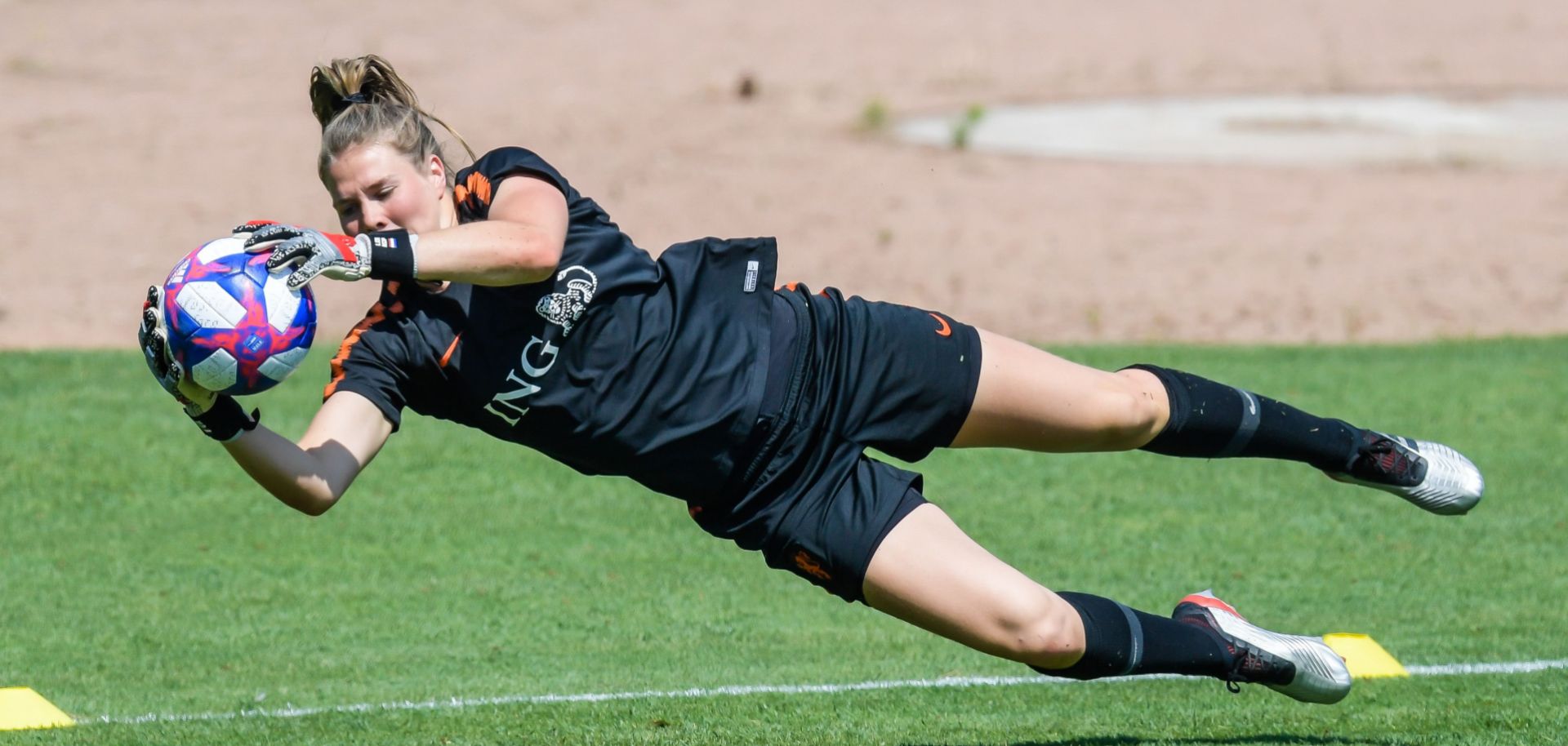GLOBAL PERSPECTIVES
Why the Women's World Cup Flies Under the Geopolitical Radar

Jul 10, 2019 | 06:30 GMT

Goalkeeper Lize Kop of Netherlands women during a training session prior to the FIFA Women's World Cup France 2019 final between United States of America and Netherlands at Stade du Metropole on July 5, 2019, in Oullins, France.
(VI Images via Getty Images)
Highlights
- Geopolitical influences that attempt to shape other international sporting events like the Olympics are not actively competing over the Women's World Cup.
- Issues such as the question of equal compensation for women were elevated during the tournament, but they have not risen above generally domestic political concerns.
- As the Women's World Cup grows in stature, it's possible that countries trying to seek geopolitical advantage will devote more attention to it.
Subscribe Now
SubscribeAlready have an account?
